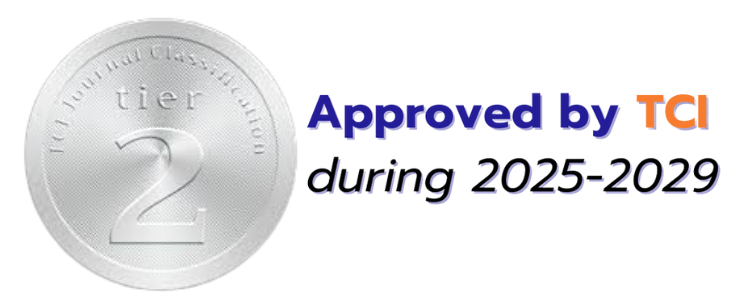The Development of a Board Game for Mathematical Conceptual Learning
DOI:
https://doi.org/10.56825/jehds.2025.926228Keywords:
Educational Board Games, Educational Games Development, Mathematical ConceptAbstract
Mathematics educational games are learning tools with the primary purpose of helping students learn a specific topic, focusing on presenting mathematical facts, nature, patterns, or relationships. Students can gain mathematical experiences that serve as a foundation for thinking and building mathematical knowledge and skills. Currently, mathematical educational games are being widely developed by teachers, professors, and educators. Most of these games focus on reviewing previously learned content to develop calculation proficiency. However, games used as tools to support learning mathematics and developing abstract mathematical concepts are still limited because such games require a complex development process with many factors to consider during development. This article aims to present the process of developing a board game that emphasizes helping students learn mathematical concepts from concrete media to abstract ideas. The game development process presented in this article is based on a review of relevant literature on educational and commercial game development, with modifications to some essential steps to develop a game that aligns with the desired objectives.
Downloads
References
Aslan, S., & Balci, O. (2015). GAMED: digital educational game development methodology. Simulation, 91(4), 307-319.
Barbosa, A. F., Pereira, P. N., Dias, J. A., & Silva, F. G. (2014). A new methodology of design and development of serious games. International Journal of Computer Games Technology, 2014(1), 1-8.
Bruner, J. S. (1966). Toward a theory of instruction (2nd ed.). Harvard University Press.
Burgun, K. (2012). Game design theory: A new philosophy for understanding games. CRC Press.
Csikszentmihalyi, M. (1990). Flow: The psychology of optimal experience. Harper & Row.
Engelstein, G. (2021). Game production: Prototyping and producing your board game. CRC Press.
Fullerton, T. (2018). Game design workshop: A playcentric approach to creating innovative games (4th ed.). CRC Press.
Gee, J. P. (2003). What video games have to teach us about learning and literacy. Palgrave Macmillan.
Hunicke, R., LeBlanc, M., & Zubek, R. (2004). MDA: A formal approach to game design and game research. Proceedings of the AAAI Workshop on Challenges in Game AI.
Jimenez-Silva, M., White-Taylor, J. D., & Gomez, C. (2010). Opening opportunities through math board games: Collaboration between schools and a teacher education program. Issues in the Undergraduate Mathematics Preparation of School Teachers, 2.
Ke, F. (2011). A qualitative meta-analysis of computer games as learning tools. In S. C. Kong, J. Sheldon, & R. J. Blanchard (Eds.), Gaming and simulations: Concepts, methodologies, tools and applications. IGI Global.
Kiili, K. (2005). Digital game-based learning: Towards an experiential gaming model. The Internet and Higher Education, 8(1), 13–24.
Nautiyal, V. V., Silverio, S. A., & Salvador, E. E. P. (2024). Let’s get on-board: a practical framework for designing and implementing educational board games in K-12 classrooms. In Frontiers in Education, 9, 1–13.
O’Neill, D. K., & Holmes, P. E. (2022). The power of board games for multidomain learning in young children. American Journal of Play, 14(1), 58–98.
Perrotta, C., Featherstone, G., Aston, H., & Houghton, E. (2013). Game-based learning: Latest evidence and future directions. National Foundation for Educational Research (NFER).
Plass, J. L., Homer, B. D., & Kinzer, C. K. (2015). Foundations of game-based learning. Educational Psychologist, 50(4), 258-283.
Russo, J., Bragg, L., Russo, T., & Minas, M. (2022). Identifying the characteristics of non-digital mathematical games most valued by educators. Education Sciences, 13(1), 30.
Salen, K., & Zimmerman, E. (2004). Rules of Play: Game Design Fundamentals. MIT Press.
Schell, J. (2019). The art of game design: A book of lenses (3rd ed.). CRC Press.
Sedig, K. (2008). From play to thoughtful learning: A design strategy to engage children with mathematical representations. Journal of Computers in Mathematics and Science Teaching, 27(1), 65-101.
Silva, F. G. (2019). Practical methodology for the design of educational serious games. Information, 11(1), 14.
Downloads
Published
Issue
Section
License
Copyright (c) 2025 วารสารศาสตร์การศึกษาและการพัฒนามนุษย์

This work is licensed under a Creative Commons Attribution-NonCommercial-NoDerivatives 4.0 International License.







